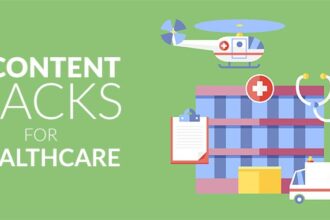As a healthcare provider, it’s your responsibility not just to provide patients with treatment, but also with information—about their ailment, about their surroundings, and about their possibilities for the future. Information is an underrated element of patient comfort, and therefore recovery, but not all healthcare administrators understand the information most important to convey to new patients.
Why Patient Comfort Matters
First, it pays to understand why patient comfort is so important:
- Improved recovery. Being comfortable and feeling positive about the situation can help patients recover faster—and of course, faster-recovering patients are good for everyone involved in the process.
- Patient morale. Patients who feel informed, and who feel they’re working with a transparent organization, are going to have better morale. That will make them more agreeable and easier for your staff to work with.
- Recommendations. Happier, more informed patients who recover faster will walk away from your organization with a much more positive perspective; that means they’ll be far more likely to give your hospital a good review and recommend it to others.
Giving patients more information gives them less uncertainty, which in turn reduces their anxiety and makes them feel more comfortable in their surroundings.
Types of Information to Provide
So what types of information should you be providing to your patients?
- Diagnosis and root causes. First, patients need to be familiar with their diagnosis, and the underlying root causes responsible for it. If they don’t fully understand the diagnosis, they may experience higher levels of fear and uncertainty. And if they don’t understand the root causes, they may be inclined to repeat their mistakes; for example, they may continue using a product associated with their illness.
- Legal options. If the patient has been injured as a result of someone’s negligence or a company’s liability, they deserve to know what legal options are available to them. While your medical staff won’t be able to provide direct legal advice, they may be able to recognize abnormal types of injuries and conditions, and recommend the patient to contact a lawyer.
- Treatments and alternatives. In the course of treatment, patients should know the details of the treatment you’re recommending to them, including any risks or unpleasant possibilities associated with the treatment. They should also know about any alternatives available, even if you don’t recommend them; when a patient feels like they have viable alternative options, they feel more in control of their destinies.
- Short-term and long-term possibilities. Patients often feel better when they have realistic expectations for both the short-term and long-term future. It may not be the news they want to hear, but it’s better to have realistic timeframes (or admissions of uncertainty) from a medical professional than it is to leave the mind to wander.
- Hospital (or organizational) information. It’s also helpful to provide information about your hospital (or other organization), so the patient feels more secure with the treatment they’re getting. This may include the credentials of the doctors or nurses treating them, the specialties available at this facility, or the length of time you’ve been in operation. Transparency will build patient trust and confidence.
- Insurance and payment options. To the average patient, health insurance seems ridiculously complicated. Patients may not have access to many resources, and may be concerned or confused about what they’re going to owe at the end of their treatment. Helping patients understand the type of insurance they have, what it covers, and what they might owe at the end of treatment is an important way to make patients feel more at ease.
- Personal contacts and communication. Though not a piece of information you can provide directly, patients typically want access to friends, family members, or other contacts who may be able to help them understand the information they’re receiving; try to put them in contact as soon as possible. This is especially important for patients who are experiencing a language barrier, or patients who don’t have a clear understanding of what’s happening to them.
As an administrator, it’s on you to make sure your doctors, nurses, and staff members are equipped with the resources necessary to provide these types of information to your patients—and are trained enough in the tenets of your brand culture to provide it proactively. Review your processes regularly to make sure you’re giving patients the attention and care they need to make a full recovery.







